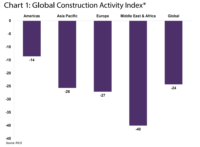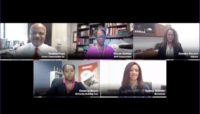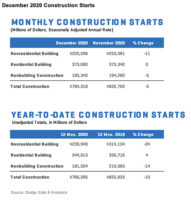Women in Construction
Tearing Down Unconscious Biases Is Crucial, Says Panel

Learning about your unconscious biases is the key to overcoming them, according to panelists on “A Wakeup Call about Unconscious Bias,” during the third day of the Ground Breaking Women in Construction conference on Aug. 26.
An unconscious bias, a prejudice that a person is unaware he or she holds, can take many forms.
In addition to ageism bias and gender bias, speakers pointed to attribution bias, based on systematic errors made when people assess or try to find reasons for their own and others' behavior, and conformity bias, when people behave like those around them instead of relying on their own judgment, among several others. The speakers gave examples such as favoring someone who went to your alma mater, or inviting only sports fans to an after work event.
“Bias doesn’t happen in a vacuum," said Dredeir Roberts, in-house counsel at Core-States Group. A manager’s unconscious bias can have a ripple effect, creating a poor environment for employees.
Roberts added that bias can also affect perspective candidates’ decisions to join a company. “Sometimes just seeing your environment, [candidates] can see the bias. Whether the hiring manager or manager is aware of it or not, it could be blatantly obvious,” she said. “You can lose talent just from them being conscious of the bias in your organization before you are [aware].”
Kelly Cowan, project executive at XL Construction, noted the industry still has a long way to go to get rid of prejudices in the office. “We’re still dealing with a lot of the same comments and issues” as women have always faced in construction, she said. She encouraged women to be confident in their place in the industry. “You are at the table and there is a reason for that.”
To combat unconscious bias, there's a need to first acknowledge it exists, says Heidi DeBenedetti, senior vice president at Gilbane Building Co. She suggested learning about different types of biases, checking your gut reaction, speaking out and holding others accountable.
“Give yourself grace,” said DeBenedetti. “We’re not going to be perfect every day.” If you misstep, acknowledge it and get back on track.
When it comes to diversity at work, employees want action and accountability, not words, says DeBenedetti. It's important to nurture "an environment where people feel like they can speak up and voice an opinion. Sometimes being polite and tip toeing around these topics isn’t getting [the job] done.”
Roberts noted two studies highlighting the importance of overcoming unconscious biases in the workplace. Companies with the highest representation of women in senior management are 34% more profitable, and 35% of millennials have left a job to join a more inclusive environment. As the millennial and Gen Z talent pool get bigger, diversity will become an even more important factor.
“Bias is bad for business,” she added.





